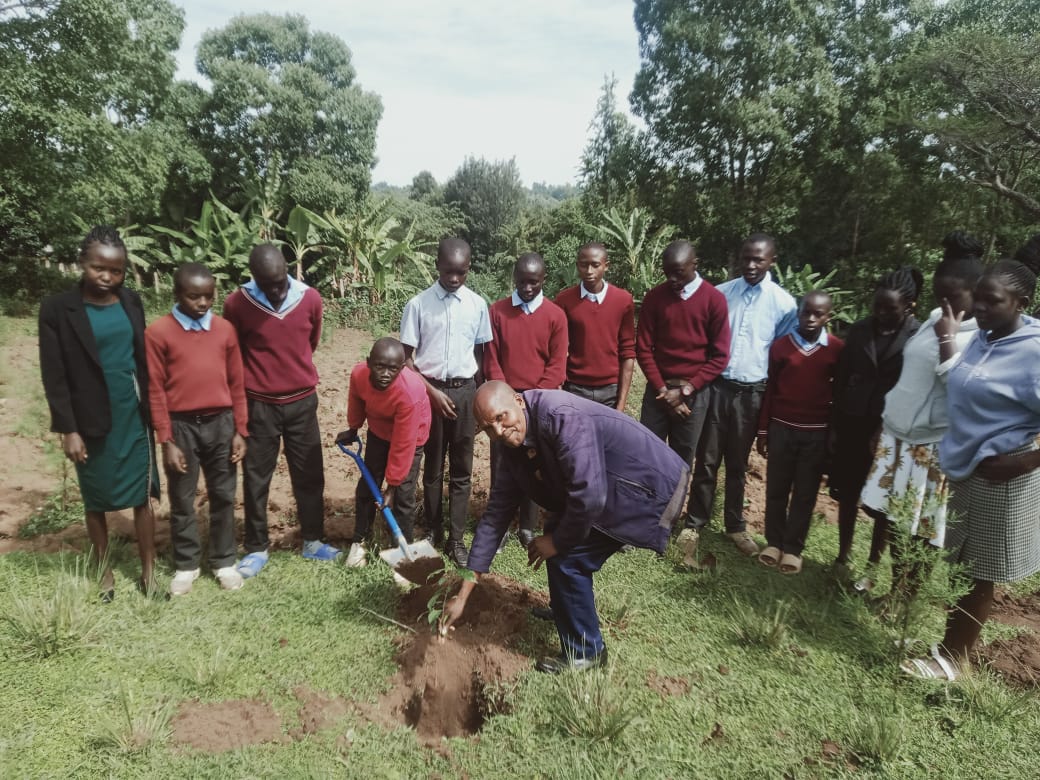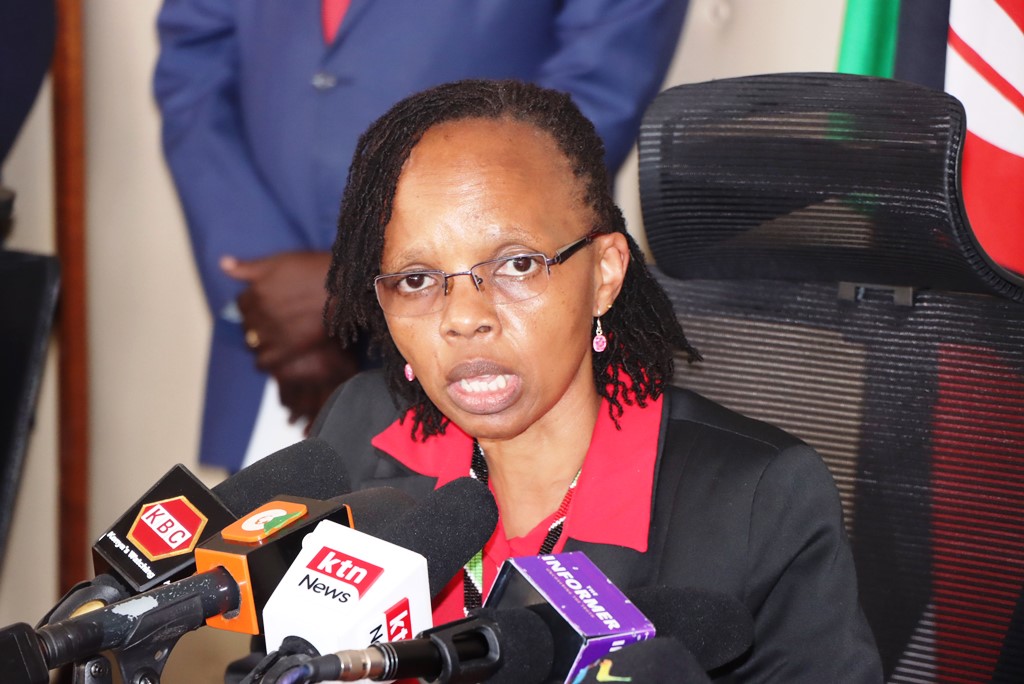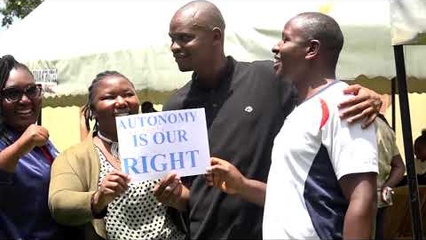The new headteacher at Talau Comprehensive School has led teachers, learners and student teachers from Kibabii and Tom Mboya Universities to plant over 800 trees.
During the exercise, Isaac Kipchoge Sitienei stated, “This is done in alignment with the government’s target of planting at least 15 billion trees by 2032 as envisioned by His Excellency President William Ruto.”
He explained that the exercise was aimed at combating climate change and achieving 30 percent forest cover from 12.1 percent by 2032. The principal explained that Talau had so far planted 4,000 trees and would cumulatively plant an additional 11,000 trees to have a total of 15,000 in the next three years.
Sitienei stated, “We have our own timetable of planting trees in addition to the government’s schedule.”
He urged the Talau community to fully support the tree planting initiative and ensure that all planted trees are nurtured.
READ ALSO:
https://educationnews.co.ke/project-based-learning-key-in-cbe-implementation/
According to the student teacher leaders from Kibabii and Tom Mboya Universities, Cleophas Sifuna and Camboline Cheruto, the tree-planting and growing exercise is a continuation of efforts by the colleges and other partners to safeguard the environment and restore the good climate that everyone enjoyed before.
Pledging to restore forest cover, the student leaders observed that the tree population was higher then and that bare land was rare, unlike what they can see today.
The students who had just started their teaching practice at Talau Comprehensive School stated that tree planting was an integral part of their training from their colleges.
While taking learners through different lessons, they said that trees are known to reduce the “greenhouse” effect by removing carbon dioxide from the air and releasing oxygen. They stated that a fully matured tree can produce oxygen sufficient to support the lives of ten people.
They stated that recent research has shown that trees can also limit noise pollution and help immensely to reduce stress and anxiety in our modern life.
According to Felix Obop, the school’s ambitious plan coordinator, tree planting has been fully institutionalised. Learners have embraced the tradition and are encouraged to plant exotic and indigenous trees continuously during the rainy seasons.
Like other forests and woodlands in Kenya, Talau, part of the larger Cherangani forest, contributes immensely to our national economy.
It provides multiple environmental, economic, social and cultural benefits that promote opportunities for poverty alleviation and general economic development of our country.
The general forest cover has declined by 14.1 percent during 35 years; conversely, crop land and grassland have increased by 8.1% and 5.8% over the same period.
Therefore, it’s necessary to join forces to implement necessary forest conservation and management strategies and then focus on rehabilitation efforts.
By Hillary Muhalya.
You can also follow our social media pages on Twitter: Education News KE and Facebook: Education News Newspaper for timely updates.
>>> Click here to stay up-to-date with trending regional stories
>>> Click here to read more informed opinions on the country’s education landscape






